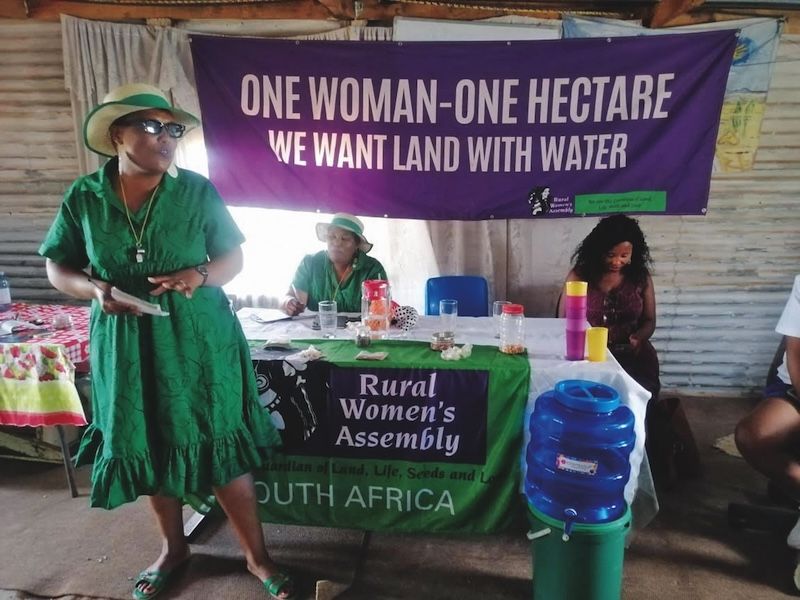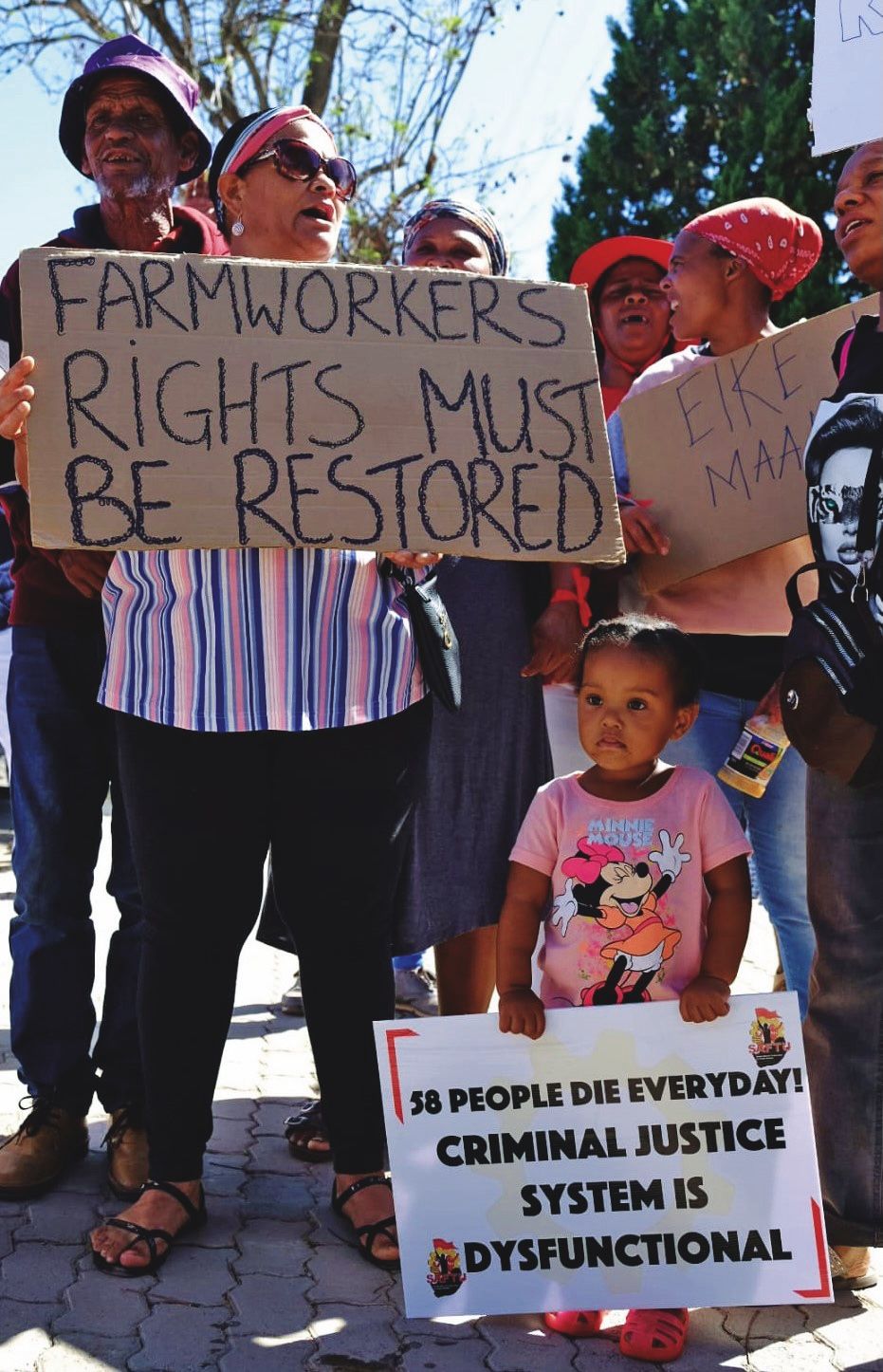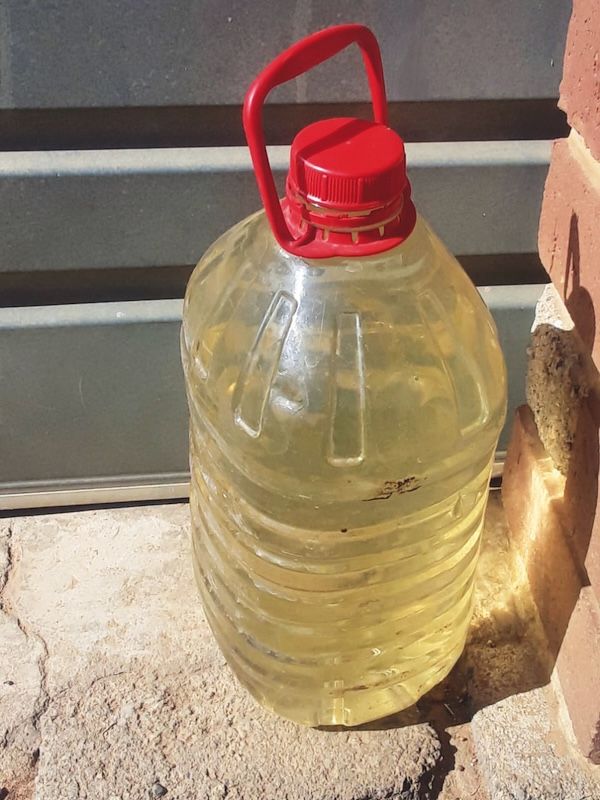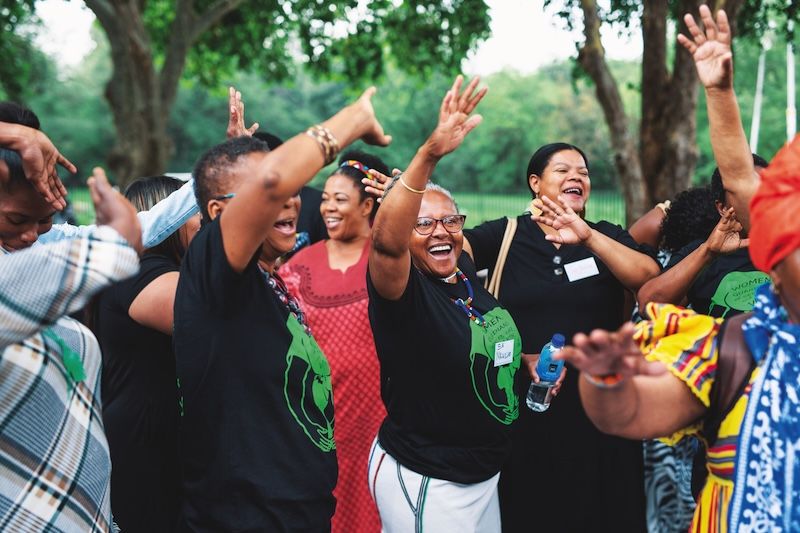
Rural Women’s Assembly- South Africa (RWA-SA)
RWA leads bold, grassroots campaigns that centre rural women’s rights to land, water, food sovereignty and safety. Flagship initiatives include One Woman One Hectare, which advocates for equitable land access, and the Photo Seed Exhibition, a creative campaign celebrating seed saving and agroecology. Healing circles addressing gender-based violence, along with arts, culture and market-based activism, have deepened RWA’s reach across provinces. Their work continues to expand, with renewed organising in the Northern Cape and emerging engagement in KwaZulu-Natal.

Farmworker Campaigns
Across the country, farmworkers are organising to challenge casualisation, evictions and exploitative labour practices. CSAAWU plays a central role in recruitment and mobilisation, especially in areas like De Doorns, Rawsonville and Vredenberg. The Sunday’s River Farmworker Forum builds local power around land and water access, while the Rural Legal Centre (RLC) provides legal support and documentation for eviction cases and labour violations. These campaigns are rooted in solidarity and push for structural change in farm labour systems.

Water Campaigns
Water justice remains a core focus of TCOE’s advocacy work. Campaigns have mobilised communities to confront contaminated supply, unannounced water cuts and unequal distribution, especially in provinces like the Eastern Cape. Workshops, case studies and public actions have built evidence and pressure for reform, while linking water access to broader struggles for land, health and dignity. These efforts foreground the lived realities of rural communities and demand accountability from both municipalities and traditional authorities.

Land Campaigns
Land access and tenure security are at the heart of TCOE’s movement-building strategy. Campaigns challenge land grabs, forced evictions and the exclusion of marginalised groups from land reform processes. Movements such as Inyanda National Land Movement, Makukhanye and Mawubuye Land Rights Movements lead advocacy efforts, supported by political education and participatory governance. The One Woman One Hectare campaign also intersects with land struggles, highlighting the gendered dimensions of dispossession and the need for transformative redistribution.